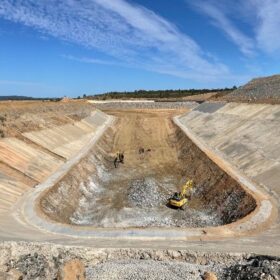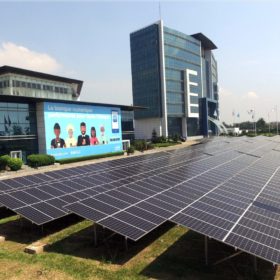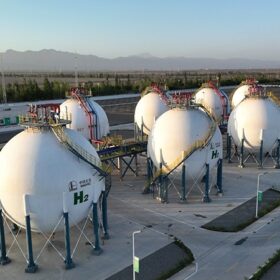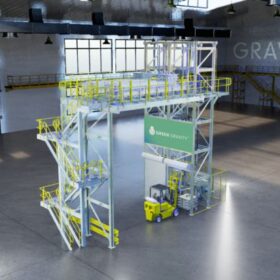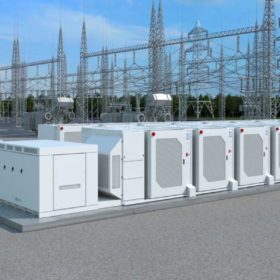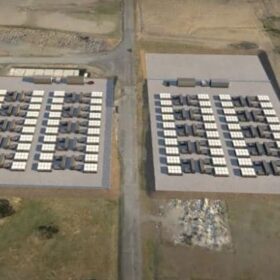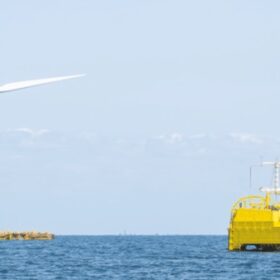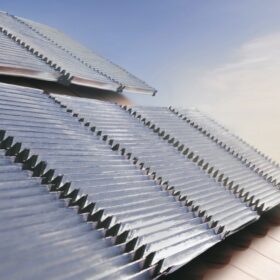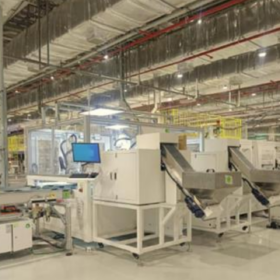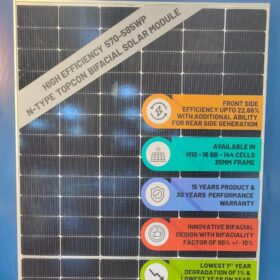Australian developer secures funding to speed up 2 GWh pumped hydro project
Australian renewables developer Genex Power has signed agreements with Japanese utility J-Power for a multimillion-dollar funding package that will support the delivery of its 2 GWh pumped hydro project in Queensland Australia, and the development of the 2 GW Bulli Creek solar and battery project.
Africa50 signs MoU with International Solar Alliance to support PV projects across Africa
Africa50 and International Solar Alliance (ISA) will leverage each other’s networks to mobilize funding and raise awareness of African solar projects in European and Indian markets.
The Hydrogen Stream: China starts world’s biggest solar-to-hydrogen site
China’s Sinopec has switched on the world’s largest solar-to-hydrogen project in Xinjiang, while India has unveiled a new plan to incentivize green hydrogen and electrolyzer production.
Green Gravity links with miner to fast track gravity energy storage tech
Australian renewable energy startup Green Gravity has teamed with underground mining contractor RUC to accelerate the commercialisation of its gravitational energy storage technology which rests on moving weighted objects through disused mine shafts.
SECI tenders 500 MW of renewables with storage
Solar Energy Corp. of India Ltd (SECI) will start accepting bids to select developers for 500 MW of firm and dispatchable power from renewable energy projects with energy storage systems.
GSECL seeks consultant for pumped storage project
Gujarat State Electricity Corp. Ltd (GSECL) has invited bids to provide project management consultancy services for a standalone pumped storage hydropower project in Gujarat. The project is planned at UKAI Dam Reservoir in Ukai. Bidding closes on July 31.
World Bank approves $1.5 billion to support India’s low-carbon transition
The World Bank has approved $1.5 billion in financing to accelerate India’s development of low-carbon energy. The financing will help India scale up renewable energy, develop green hydrogen, and stimulate climate finance for low-carbon energy investments.
‘Renewables will eat itself,’ says Australian analyst
Over the next five to 15 years, batteries will undercut the business case for major transmission and interconnector projects. These assets will nonetheless likely be built, decreasing price spreads and eating into the revenues of batteries, predicts analyst Warwick Johnston.
Lhyfe launches world’s first offshore hydrogen project
Lhyfe has started producing offshore hydrogen via a pilot project in France, and Toyota and its partners have agreed to invest in hydrogen in Thailand. The Australian authorities, meanwhile, have approved a hydrogen project in Victoria.
Solar-driven photoreactors to generate hydrogen on rooftops
Scientists led by the Karlsruhe Institute of Technology have designed panel-like photoreactors relying on a water-splitting photocatalyst that could produce hydrogen on rooftops or dedicated solar farms. They claim the photoreactors have high economic potential because of their ‘extremely’ low costs.
